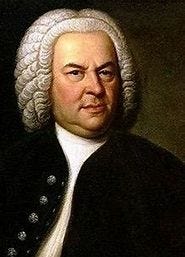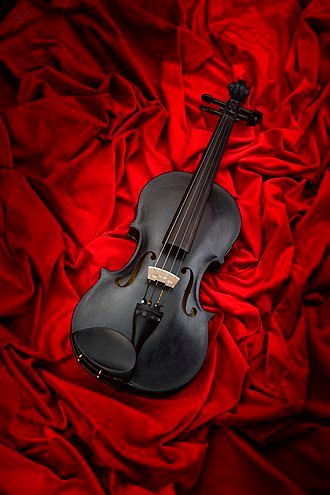NEW - With added links to Classical Artists of today - click to open in planksip©
!! Classical music listeners preferred !!I want to take you to a special place filled with memories, memory-makers, and soundscapes. I want to awaken your ears to hearing better, hearing, new. I want you to stop your background music for the sheer easiness of it.
When one thinks of the classical music they regularly hear on regularly programmed stations, one might have one of four pictures in mind. Let’s pretend it’s a Monday or Tuesday morning, you put on your background music:
1) the lutist strumming awkwardly to a piccolo-wielding maniac hopping about the king's court, trying for amusements and getting it. Someone is hammering the keys of some early piano. This is the Baroque... this is 30% of the musical wasteland your ears are forced to listen to on most classical channels. This is an anathema to today's grip on classical music, historical or contemporary. It has quick rushes of tactical brilliance, but it has its limits. You can't do homework to this music. I suppose you could chase farm animals to it.
2) a symphony seen through violins, creating a wind tunnel of woodwinds and trumpets, possibly someone on the piano running his trilling fingers up and down an early keyboard. There live some grand concertos and sonatas in this midst. This is a Classical Symphony. This is 50% of what you hear, academic but simply the same... Put in a few notes, a handstand of chords, a few lulls - you're a musician! (this stage is where I love to spend my time but the music stations get it all wrong jumbling everything together for the 'elevator music' from hell.)
3) The rest are waltzes, blizzards of horns, or some spit winding through a full orchestra with canceling music that doesn't nurture the spirit any more than pure silence. A lot of Russians wrote music like this. It sure makes me think that a lot of men got out of going off to fight a war by saying they could write music.
"I play the notes as they are written, but it is God who makes the music."— J.S. Bach
4) Beyond that, some classic fugues may be in order but they aren't selected at opportune times like heavy metal ballads, they're just there... squeezed between a Russian war symphony and Mme. Butterfly. Which are long and tonal.
We've been inundated with these four levels of classical music all our lives! Most of it sounds like high school kids before recess. Yes, it is dramatic and sophisticated, it deserves some respect but a classical music workday on any of the stations I've sampled gets classical music programming wrong. And below is an antidote to blockage. Not just the choices of pieces it puts out there to listen to.
If you stand back and look at what you actually get sent to your ears, it might surprise you how bad classical music can be for your health. Unlike other kinds of music, classical has no lyrics, outside of opera, no words. So it aligns with your mind differently. Like some is meant to soothe your day like at a spa, chiropractor, or massage therapist, it pacifies the soul. Or it triumphs it with noise.
This is essentially the playlist repertoire of classical music stations, terrestrial, online, or satellite. SiriusXMs' limited vision of classical for the ages was stunted in the 19th century. Most of it doubles 'on hold' music. Is there a human being behind the music? Passion is infrequent or it is the same passion regardless of the musician. I had to cancel my subscriptions and make my own playlists.
If you listen to classical, you must know some or all of what I say is true. We've been haunted by these old ghosts lying about... let me bring life back to classical music.

The only symphonies I can work to is Bach's post-Baroque, particularly the six Brandenburg Concertos and a handful of other concertos and sonatas. It just goes really well with writing, thinking, and developing ideas. He went through such a transformation as newer instruments came out. That leaves Mozart, Chopin, and Vivaldi in my Top 5s. Haydyn is in there. The rest is what random stations fill you with. In 4/4 time, it’s 3/4-time vomit. It might have been impressive or avant guard two hundred years ago but it is annoying by today's standards. It deserves to be stuck in a vault for fifty years.
b–a–c–h is the beginning and end of all music– Max Reger, 1912
If you listen to classical music, then this paints a picture of a particular type of individual. Whoever shies away from the vast scores seems to find themself on the fringe, quintets and quartets, soloists. No one claims Tchaikovsky as their favorite - no one. Except to pledge allegiance to a single stroke or two of brilliance. But he isn't a playlist contender. There is no Tchaikovsky 24/7 station making money on the planet.
The rest is space and sound, often confused as they wander around each other. Beetoven's great! But the labor of listening to him is overwhelming after a few pieces, that is, if you listen to the music, not just use it to mask silence. Beethoven is a lot of work just to 'enjoy'. He is labor-intensive listening.

We need a Shakespeare of classical music and the only candidate is J.S. Bach. I categorically need my Bach, a musician who wrote in sheer, precise mathematics. Perhaps the most remarkable “mathematics” in Bach’s music are the instances of the golden ratio, usually denoted with the Greek letter ø = (1 + sqrt(5))/2 = 1.6180339887…, together with the Fibonacci numbers, whose limiting ratio is equal to ø (i.e., the Greek letter phi). Bach wrote for the inclined mathematical ear through his subtle cues in notes and nuanced chords, making him the greatest composer of all time.
But he had a secret called "The Bach Motif."
Bach was a stringent musician, and this subset of musicians have done things to music that would bring tears to Bach's eyes. Delicately textured, manifest silence, keep tapping, touching, and stoking the piano to life. It is plain and mysterious as it is sexy and solipsistic. I attribute all of the 20+ new players of this genre to be acting on the Bach Motif, a little-known art of working everything with a healthy dollop of mathematics.
Musicians have done things to music that would bring tears to Bach's eyes.
— B. Antonson
Pachelbel's Canon in D is a prime example of it. This is known as the Wedding Song too. Virtually everyone knows this b-a-c-h motif piece.
The Bach motif is a succession of notes important or characteristic to a piece, B flat, A, C, B natural. In German musical vocabulary, in which the note B natural is named H and the B flat named B, it forms Johann Sebastian Bach's family name. One of the most frequently occurring examples of a musical cryptogram, countless composers have used the motif.
Mathematics is the music of reason.
— James Joseph Sylvester, English mathematician
These keys, while known throughout the centuries as cryptic and self-serving, are all that is needed to produce most of the known Western canon of repertoire. But this motif, laden within, guides a wealth of lonely and thoughtful notes, a great distance from the baroque era and in the genre of Bach's Air in G. New composers are finding these keys all the time and releasing more history to the motif.
But wait, what has fallen into 'New Classical?" What is this amazing sound? There is a subset of wonderful new music, often solo piano, that has dominated my playlist for nearly three years. Dirk Maassen and Chad Lawson have reintroduced the world to classical music that was never done 200 years ago. It's light and pastoral, it's dark and depressing, and it's uplifting and clear. It's in surround sound, with very high impedance above 120 ohms, and in the middle of your head.
If you are into classical but find it kind of 18th century, chunky, and too dynamic on the piano, harpsichord, or trumpet, try a Classical Crossover Artist.
I've limited my preferences to offer the best of which I'm most sure I can pass on these artists as gold. If you like simply desirable, ambient slow music (often with slight jazz influences), these artists will not disappoint, Dirk Maassen - (Solstice D'Été is currently my favorite driving album of all time):
Classical Crossover artists:
Dirk Maassen - Solstice D'Été https://music.apple.com/ca/album/to-the-sky-feat-london-dc/651100556?i=651100563
Chad Lawson - https://music.apple.com/ca/album/you-finally-knew/1522519865
Piano Novel - https://music.apple.com/ca/album/lumino-forest/1477986159
Jóhann Jóhannsson - https://music.apple.com/ca/album/orphée/1440775286
Helen Jane Long - https://music.apple.com/ca/album/perspective/1340074880
Fiona Joy Hawkins - https://music.apple.com/ca/album/blue-dream/1683035534
Brian Crain - https://music.apple.com/ca/album/life-is/701063793
Ryan Stewart - https://music.apple.com/ca/album/one-journey/914003887
Ludovico Einaudi - https://music.apple.com/ca/playlist/ludovico-einaudi-essentials/pl.227d82cd5cb843bda2839d3c964a368e
Ambient Soundscape Artist:Marconi Union - https://music.apple.com/ca/album/different-colours/522438587
Thank you, I hope I've led you on a chase through artists and the hallmark of the Bach motif to finding enjoyable listening success. Care what goes into your ears...!
SOURCES:
Bach Motif: https://en.wikipedia.org/wiki/BACH_motif
iTunes: https://apps.microsoft.com/store/detail/itunes
Spotify: https://www.spotify.com/ca

